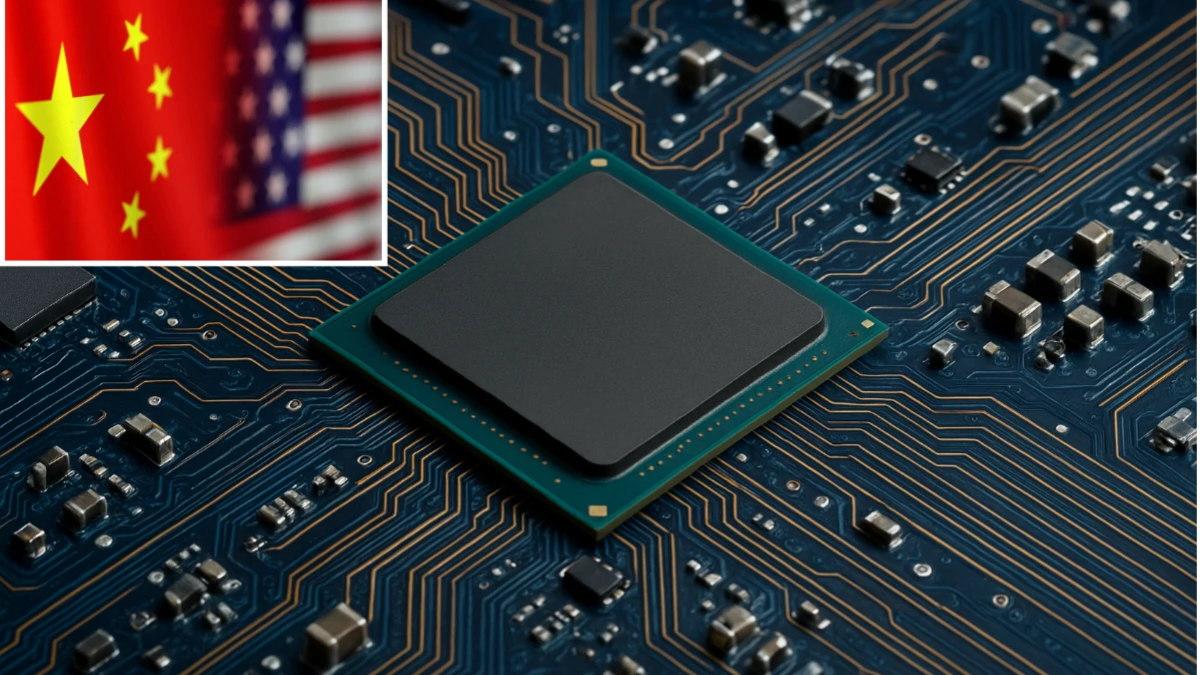WASHINGTON — A federal indictment alleging alleged AI chip smuggling to China has intensified calls in Congress for stricter oversight of high end semiconductor shipments, as US officials work to enforce sweeping technology export restrictions.
The US Department of Justice on Thursday charged four individuals with conspiring to illegally move Nvidia’s advanced GPUs to China, a case that lawmakers said underscores urgent national security risks.
Representative John Moolenaar, who chairs the House Select Committee on China, said the arrests show “an obvious gap in how we track strategic technologies.” He urged quick passage of the bipartisan Chip Security Act, legislation designed to prevent sensitive chips from being diverted through foreign intermediaries.
The indictment accuses two US citizens and two Chinese nationals of orchestrating an alleged AI chip smuggling scheme that relied on fake contracts, shell company purchases and third country shipping routes.
Prosecutors said the defendants knowingly bypassed licensing requirements by routing high performance Nvidia GPUs through Malaysia and Thailand between late 2024 and early 2025.
According to court documents, the group exported four hundred Nvidia A100 GPUs to China via Malaysia and attempted to send ten Hewlett Packard supercomputers containing Nvidia H100 GPUs and fifty H200 GPUs through Thailand. US law enforcement intercepted the latter shipments, the Justice Department said.
Officials alleged the conspiracy used a Tampa based front company to purchase restricted chips and that nearly $4 million in wire transfers from China funded the operation. Prosecutors said the defendants created fraudulent invoices and misdeclared shipments to obscure the final destination.
China has criticized Washington’s export restrictions as part of a broader geopolitical competition. Beijing has repeatedly said the U.S. is attempting to “weaponize supply chains” and impede its development of emerging technologies.
Technology analysts said the case reflects the complexity of monitoring supply chains for advanced semiconductors, which can be easily re-routed once they leave US shores.
“Regulating physical chips is far harder than regulating software because these components move through distributors, brokers and third party logistics hubs,” said David Kwan, a senior researcher at the Pacific Tech Security Institute.
“The alleged AI chip smuggling case shows how determined actors can exploit loopholes.” National security experts also warned that high end AI processors play a central role in China’s military modernization efforts.
“These GPUs are not just consumer hardware,” said former Pentagon export control adviser Karen Whitfield. “They enable training of complex defense related AI systems. Preventing diversion is essential.”
Whitfield said the indictment will likely bolster bipartisan momentum for tighter tracking, noting that multiple congressional committees have flagged similar risks over the past year.
The United States imposed broad export controls in 2022 and expanded them in 2023 to limit China’s access to advanced GPUs used for training artificial intelligence models. Since then, US officials said they have blocked dozens of attempted illegal transfers, though few have resulted in high profile criminal cases.
A report by the Congressional Research Service last year found that high performance chips often travel through Singapore, Malaysia, Hong Kong and the United Arab Emirates before reaching buyers in mainland China, complicating enforcement.
“The global semiconductor supply chain remains one of the most challenging trade networks to regulate,” said CRS policy analyst Elena Hart. “This alleged AI chip smuggling incident is part of a larger pattern of diversion attempts.”
Industry groups estimate that more than $1 billion worth of high end chips were rerouted to unauthorized destinations in the past two years through parallel trading channels, although precise figures are difficult to verify.
At a computer hardware market in Tampa, small business owners said the case has drawn unusual attention to a typically obscure corner of the tech industry.
“People don’t realize how valuable these chips are until they see headlines about them being smuggled,” said Omar Castillo, who runs a local electronics shop. “We get inquiries from everywhere, and sometimes it’s hard to know who the end user really is.”
In Los Angeles, logistics operators said the indictment has prompted new concerns among shipping companies.
“We are seeing more questions from customs, more inspections and much higher scrutiny,” said Lynda Chen, who manages a freight forwarding firm that handles tech equipment. “No one wants to be caught up in anything involving alleged AI chip smuggling.”
A doctoral student at the University of Michigan researching AI ethics said the case shows how geopolitical tensions are now filtering into civilian academic settings.
“Researchers worry their work is being politicized,” said Ming Zhao. “But at the same time, everyone understands the stakes around preventing misuse of advanced computing power.”
Lawmakers from both parties said the incident strengthens arguments for mandatory chip tracking mechanisms, including serial number registration, geolocation verification and real time reporting of suspicious orders.
The proposed Chip Security Act would require manufacturers to log and monitor the movement of restricted GPUs and flag anomalies to federal agencies.
Supporters said such measures would provide visibility into secondary markets and make it harder for illicit operators to exploit gaps.
Opponents cautioned that overly stringent tracking could disrupt legitimate global research collaborations or increase compliance burdens on US companies competing with foreign rivals.
Still, analysts widely expect Congress to move forward on the legislation, noting increasing pressure to counter China’s technological rise and to prevent further cases of alleged AI chip smuggling.
The indictment has renewed scrutiny of the global semiconductor trade and highlighted the ongoing challenges Washington faces in enforcing export restrictions.
As lawmakers push for new tracking requirements, industry leaders, researchers and national security officials are bracing for tighter oversight and new compliance expectations.
Whether the Chip Security Act passes or not, the debate over how to prevent alleged AI chip smuggling is set to shape US technology policy for months to come.
